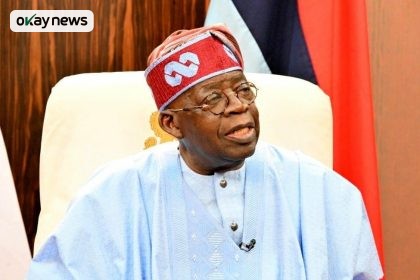In the first six months of 2025, Nigerian states collectively spent about N235.58 billion on servicing external debts, a significant surge compared to similar periods in previous years. An analysis of Federal Account Allocation Committee (FAAC) data released by the National Bureau of Statistics reveals a 68.4 percent increase—equivalent to N95.65 billion—over the N139.92 billion paid in the first half of 2024. This dramatic rise underscores the growing strain on state finances due to dollar-denominated debt repayments amid naira depreciation, okay.ng reports.
The Federal Government manages this debt service through an Irrevocable Standing Payment Order, automatically deducting loan repayments from states’ monthly FAAC allocations after agreements are finalized. In January 2025 alone, states paid N40.09 billion—an extraordinary 305 percent year-on-year jump from the N9.88 billion paid in January 2024, marking the largest monthly outflow in the period.
February saw N39.10 billion repaid, a 59.5 percent increase from the prior year, followed by stable payments of N39.10 billion monthly from April through June, signifying a phase of currency stability in the second quarter.
Lagos State stands out as the leading debtor, contributing N49.58 billion in debt servicing, a 52.8 percent increase from the previous year, reflecting both its extensive external borrowing for infrastructure and the impact of the weak naira on dollar-linked obligations. Rivers State experienced a massive over 470 percent increase to N26.34 billion, while Kaduna, Ogun, and Edo states also showed significant rises.
At the other end, states like Jigawa, Benue, and Yobe recorded smaller but nonetheless substantial increases, pointing to a nationwide burden intensified by currency depreciation.
Economists warn that many states now spend a disproportionate share of their internally generated revenue (IGR) on debt, with seven states averaging 190 percent of IGR going to loan repayments in the first quarter of 2025. Teslim Shitta-Bey, Director and Chief Economist at Proshare Nigeria, cautioned, “Most of the governments, including the Federal Government, are unable to manage their balance sheets properly… borrowing is not necessarily the right approach.”
He advocates for long-term debt structures resembling equity and advises states to better leverage revenue bonds over general obligation bonds. Meanwhile, the Nigeria Extractive Industries Transparency Initiative highlighted concerns about states that rank low in FAAC allocations yet have high debt service burdens, threatening fiscal sustainability.
Analysts also stress improving tax collection and internal revenue generation as critical steps for states amidst rising debt service obligations and reduced federal transfers.







